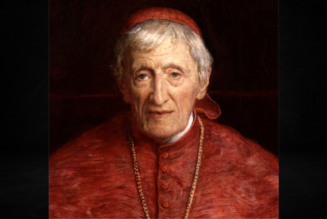By Phil Lawler ( bio – articles – email ) | Jul 25, 2024
Today’s CWN headlines include three different reports about the powerful surge of spiritual energy generated by the National Eucharistic Congress. Will the fervent faith that was at work in Indianapolis prove contagious? Will it spread beyond the thousands of people who participated in that unique event?
That crucial question—How do we communicate the faith that we feel?—was on my mind this morning, as I picked up Christendom, a massive study by Peter Heather on the spread of Christianity during the first millennium after Christ. The book is an exhaustive project (the bibliography alone covers 50 pages), by a historian who provides a staggering amount of information about a period of Church history with which few of us are familiar: the years when, starting with Constantine, the Christian faith grew from a tiny religious minority, a foreign import on a pagan continent, to become the dominant institution in Europe.
But Heather acknowledges at the outset that he is not a believer, and in his effort to explain the growth of Christian faith, his focus is on political factors rather than the inherent appeal of the Gospel message. No thinking Christian would deny (especially after reading this book) that politics often played a role in the growth of the Church. Nor is there any doubt that Church leaders were sometimes very enthusiastic practitioners of the political arts. Heather is especially convincing when he argues that for centuries there the distinctions between secular and religious authorities were not at all clear, and indeed emperors convened and presided over councils of bishops.
All undeniably true. Yet it was not solely—not even mainly—because of political machinations that the faith spread. Europe became Christian because the people believed, and the orthodox faith outlived heretical sects because the truths of the faith shone through the decades of confusion. In an otherwise fascinating book, Heather fails to take adequate notice of the zeal that has fired Christian evangelists and captivated converts.
Thus in discussing how the faith spread in England, Heather makes the bland observation: “Christianity’s teachings on death had much to recommend them.”
Well, yes. From the earliest days of the faith, Christian evangelists have proclaimed the Good News that Jesus offers us a path to eternal life. This is not a new rhetorical device, nor is it something like a politician’s campaign promise. It is the witness of hope.
Without the grace of faith, pagans—from the most ignorant peasants to the greatest philosophers—were forced to confront the realization that they were mortal. We must all face the unhappy reality that we are going to die; there is no way, in the natural order, to escape that fate. But Christians brought to the pagan world the revolutionary message that we are not doomed to die; that we can live forever. Talk about good news!
The pagans also struggled to cope with the knowledge that we are not the people we want to be. We fail, we make mistakes, we fall short of our own expectations—in Christian parlance, we sin. We are perpetually unsatisfied with ourselves; we know that we are not what we could be. For that sad realization, too—call it guilt, if you wish—Christianity also offers an antidote, explaining that through his sacrifice, Jesus has obtained forgiveness of our sins. We can be freed from our failings; we can ultimately live in the perfect happiness that our current weakness denies us.
In Spe Salvi Pope Benedict XVI wrote that in order truly to understand the Christian virtue of hope, one must first experience the need for hope. Before you can appreciate the medicine you must suffer the illness. The pagans knew the fear of inevitable death; they felt the need to assuage the wrath of their gods. So they joyously welcomed the Gospel message, with its promise of redemption and eternal life.
Today, jaded modern man shoves aside the prospect of death, falsely confident that it is far away. (And when the prospect moves closer, modern man is prone to panic.) Our cultural guides teach us that we must accept ourselves—as we are, warts and all—in order to find happiness. In these respects we are a few steps behind the pagans of antiquity; we don’t even feel the need for hope.
The popular television ad campaign, with the theme that “He gets us,” is a failed attempt to reconcile the complacency of the secular culture with the message of the Gospel. Yes, Jesus “gets us.” He knows that we are poor sinners. But He does not propose to leave us in that sorry state. He sends his apostles out with the message: “Repent, and believe in the Gospel.”
First repent, and recognize that, left to our own devices, we are hopeless. Then, recognize that “we who have fled for refuge might have strong encouragement to seize the hope set before us.” (Heb 6:18)
Sound Off! CatholicCulture.org supporters weigh in.
All comments are moderated. To lighten our editing burden, only current donors are allowed to Sound Off. If you are a current donor, log in to see the comment form; otherwise please support our work, and Sound Off!











